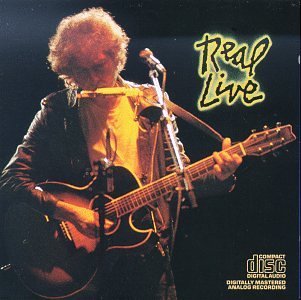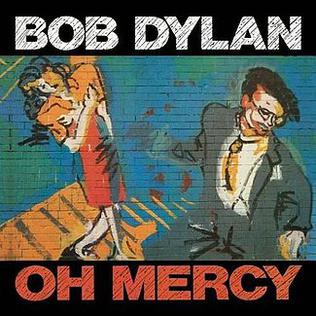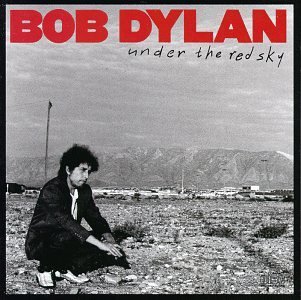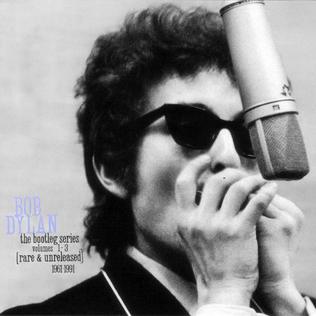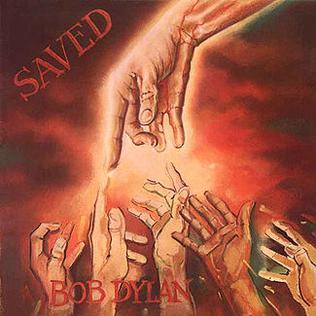Now that I am in my mid-40s I can definitively say that middle age sucks. You realize you won't get to do a lot of what you wanted to and your physical and mental powers start to decline. The rock stars of the sixties were never supposed to grow old, and a bunch of them were pretty lost in the 80s, including Dylan. Some managed to find a way back (including Dylan.)
This was the era when I encountered Bob Dylan. In my case it was through the "We Are The World" song and I had no clue who that weird old guy croaking happened to be. Years later I saw his chaotic/brilliant Grammy performance in 1991, which was weirdly the catalyst for digging into his music. Anyone so willing to confound a national television audience must have been on to something, after all.
This is the longest period I am covering in this series, and until the late 90s I pretty much assumed the rest of Dylan's career was going to be all wilderness. However, there were some good moments in the wilderness, there's a reason the Bootleg Series on this era is called Tell-Tale Signs. Now on to look at the good, the bad, and the downright awful.
Infidels (1983)
Coming after the Christian trilogy Dylan's fans and critics loved his return to secular music. I only first heard it a few months ago and it's pretty good. However, its reputation has been inflated a bit by the low quality of what came before and after. "Jokerman" is a song I can't stop singing to myself, and is the obvious highlight. Some of the political stuff in the others songs is weirdly off-key. "Neighborhood Bully" has been interpreted many ways, but I hear the title meant to be taken ironically as part of an implicit defense of Israel's awful tactics in their invasion of Lebanon in 1982.
The real kicker is the best songs he recorded at the time aren't even on the record! (More on that in a bit.)
Rating: Three and a half Bobs
Real Live (1984)
Confession: before I did this series I did not know that this album even existed! Evidently rock audiences at the time didn't either, based on the sales figures. Yes folks, it's yet another mediocre live album. However, Mick Taylor on guitar and Ian McLagan on keys give it some real rock power. That saves the mostly tepid performances from Dylan himself.
Rating: Three Bobs
Empire Burlesque (1985)
Hoo-boy this is bad. Why on earth does Allmusic give it four and a half stars? The problem is not the mid-80s production, since I actually like that sound. The issue is that Dylan as producer does the mid-80s sound all wrong. In his hands it sounds as tacky as the album cover looks. "Tight Connection to My Heart" is a good one, but there's only a couple of other interesting songs.
Rating: Two and a half Bobs
Knocked Out Loaded (1986)
Welp, this one is even worse. As on Self-Portrait, some of the songs are actually unlistenable, especially the fake profound "They Killed The Man." It's like the worst lounge singer trying to rip off "Abraham, Martin, and John" but with a treacly kids chorus at the end. A lot of people talk about "Brownsville Girl" as one of Dylan's best, but the production on this album is so terrible I was too distracted to enjoy it fully. It does save this album from a one Bob review, though.
Rating: Two Bobs
Down in the Groove (1988)
The second album in a row with a title that seems to reference being in a low position. Perhaps it was a cry for help. I just listened to it for the first time and then pretty much forgot it the next day. Like the other albums of this era it has a couple of moments to show you that Dylan had not completely lost his spark. I dig "Silvio."
Back in the day the Onion's AV Club section had a yearly roundup of "the least essential albums." The distinction was that "least essential" did not necessarily mean worst, just the albums with the least reason to exist. So far this is Dylan's least essential album.
Rating: Two Bobs
Dylan and the Dead (1989)
There are people in this world who like the Grateful Dead. I am not one of them. They always struck me as an interesting roots rock band that needed to stop noodling and get a singer with the soul power necessary to bring their music off properly.
At the time this album came out there was a group called Dread Zeppelin that played Led Zeppelin covers in a reggae style while being fronted by an Elvis impersonator. Dylan with the Dead is like that with all the fun, humor, and inventiveness drained out. These are all live cuts and Dylan's voice sounds ragged. The Dead's accompaniment is boring and surprisingly anonymous. The song selections are questionable, especially the godawful "Joey." The one highlight is the funky take on "Gotta Serve Somebody." I agree with the critics who say this was his lowest point.
Rating: One and a half Bobs
Oh Mercy (1989)
Suddenly, in the midst of his lowest point, Dylan put out a great album. People who read his memoir were surprised that he devoted so much time to it, but I wasn't. This was the moment where he realized that he could still make great music. Having Daniel Lanois as a producer helped, and this album makes me wish he had a stronger hand with him in the studio at other points in his career. I should admit that I love Lanois' ethereal sound, as much as some other people don't like his formula. Recording in New Orleans also seemed to give it a good dose of that swampy juju that nourished the roots of American music for so long.
There's so many songs I love on this record. After listening to the rest of his 80s output something like "Ring Them Bells" or "Most of the Time" is just absolutely stunning by comparison. Unlike most of his other 80s output, it actually sounds like a cohesive whole, a true album. I listen to it a lot but hearing it in this context I can see why it would have been proclaimed "his best since Blood on the Tracks." In this case that phrase is not faint praise.
Rating: Four and a half Bobs
Under the Red Sky (1990)
However, I can't use Oh Mercy to start another period in Dylan's career because he followed his best album of the 80s with his worst album of the 90s. I mean really, what the hell is going on here? I've read that the whole thing was basically just tossed off, and it certainly sounds like it. There's weird nursery rhyme lyrics and meandering songs. I've always liked Don Was' production (I am an early 90s kid) so at least it doesn't sound as atrocious as his mid 80s records, even if the songs are far weaker.
I've read that Dylan's work with the Traveling Wilburys pushed him to do better and Oh Mercy was the result. Evidently this album was rushed due to his work on the second Wilbury's record. The Traveling Wilburys giveth and they taketh away. Still worth it to get Oh Mercy.
By the way, Robert Christgau gave this awful thing an A-. Dean of Rock Critics my ass.
Rating: One and a half Bobs
Good as I Been to You (1992)
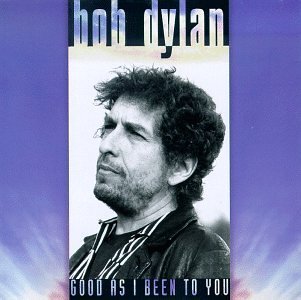
A covers album is often a sign that an artist is out of ideas. Dylan's songwriting well was low, but the covers here are so spirited and confident after a decade of Dylan sounding tentative while flailing around in the modern studio. I hadn't listened to this one in years and really enjoyed hearing it again. The guitar is lively and driving in these songs, it's folk music as good time music for an artist who's not exactly known as a good time sporting man. The two folk albums he did in the 90s seem to have revived a love of music in him, something that seemed missing in most of the prior decade. Highly recommended.
Rating: Four Bobs
World Gone Wrong (1993)
As a later Gen X white guy who loved alternative music, 1992-1994 is one of my favorite music eras. The stuff I liked punched out of the underground, and even the cover of a Dylan album was drenched in its aesthetic. A lot of music in the 90s was about stripping away all the Reagan Era dayglo frippery and getting at the root. This was going on in the whole "alt-country" music, in how Nirvana brought the punk ethos mainstream, and in gangsta rap's hard-hitting directness.
Dylan's exploration of older music with just his acoustic guitar fit the times well, and also reflected how many legacy artists managed to find their way home in this time. Johnny Cash came back in a similar way, while Neil Young brought back Crazy Horse and their caveman stomp after a decade in the wilderness. I might like this one best of the two Dylan albums of the time due to the presence of hardcore blues songs. He sings them so well and with such obvious affection. While there are no original songs, this sounds like a man who is falling in love with music again, and remembering why he did all this in the first place. It's about to pay off big.
Rating: Four Bobs
Unplugged (1995)
MTV's Unplugged was one of the most popular manifestations of the aforementioned 90s obsession with getting down to the roots. Plenty of artists went on, from the cutting edge popular acts of the day to legacy artists trying to be relevant. Dylan was obviously in the latter category. I watched the show pretty religiously at the time, but I don't have clear memories of this one. There's no revelations here but it's a surprisingly strong set and the audience is into it. His return to folk seems to have given him much more confidence as a performer.
Rating: Three and a half Bobs
Bootleg Series Vol 3 (recorded 1975-1989)
This is the last disc (or tape in my case) of the first Bootleg Series release and almost all of it covers the 80s. At the time fans were blown away by songs like "Bling Wille McTell" and "Foot of Pride," either of which would have competed with "Jokerman" for the best song on Infidels. "Series of Dreams" is the best U2 song U2 never recorded. It is just gorgeous and listening to it lifts my soul. Daniel Lanois wanted to make it the first track on Oh Mercy and Dylan kept it off! I get that the mood is a little different from the album, just like "Blind Willie McTell," but it is unbelievable that Dylan would keep these songs under wraps when he was releasing dreck like "They Killed the Man"! I wonder if this was a result of a lack of confidence on his part, or even a weird desire to self-sabotage. Nevertheless, give it a listen. These relics are great songs, and proof that artist's don't know their own work best sometimes.
Rating: Five Bobs
Bootleg Series Vol. 8 Tell-Tale Signs: Rare and Unreleased 1989-2006
Some of these songs straddle the post-Time Out of Mind renaissance, so I will just stick to the ones from the wilderness and discuss the others next time (although I will give my rating this time.) It is noteworthy that none of the songs here come from his troika of awful mid-80s records. When I bought the album it immediately deepened my appreciation for Oh Mercy and just how much Dylan's creativity had been revived in that period. The live version of "Ring Them Bells" is one of my favorite all time Dylan recordings. The alternate versions of songs from Oh Mercy are revelatory and might please those who don't care for Daniel Lanois' production techniques. The wealth of stuff here makes you wonder how the hell Under the Red Sky ever happened. Taken as a whole it's a fantastic listen.
Rating: Four and a half Bobs

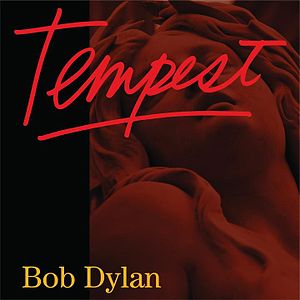
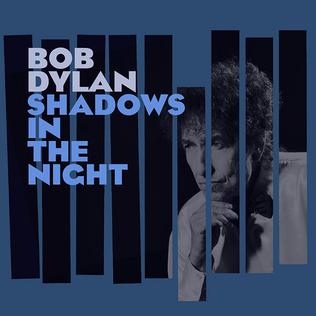
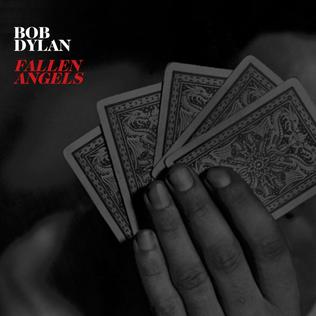
.jpeg)






